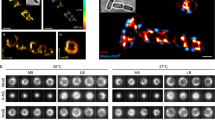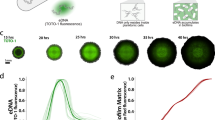Abstract
THE idea of Stanier and van Niel1 that bacteria (and possibly blue-green algae) are “prokaryotic” organisms, lacking a nuclear membrane, appears to have been accepted almost without argument. All other cells possess such a membrane, and are “eukaryotic”, according to this theory.
This is a preview of subscription content, access via your institution
Access options
Subscribe to this journal
Receive 51 print issues and online access
$199.00 per year
only $3.90 per issue
Buy this article
- Purchase on SpringerLink
- Instant access to full article PDF
Prices may be subject to local taxes which are calculated during checkout
Similar content being viewed by others
References
Stanier, R. Y., and van Niel, C. B., Arch. Mikrobiol., 42, 17 (1962)
Bisset, K. A., Bild Wiss., 7, 212 (1970).
Braun, V., and Bosch, V., Proc. US Nat. Acad. Sci., 69, 970 (1972).
Editorial, Nature, 237, 311 (1972).
Bisset, K. A., The Cytology and Life-History of Bacteria, third edition, 72 (Livingstone, Edinburgh, 1970).
Bisset, K. A., Vistas in Botany, 1, 313 (Pergamon Press, Oxford, 1959).
Author information
Authors and Affiliations
Rights and permissions
About this article
Cite this article
BISSET, K. Do Bacteria Have a Nuclear Membrane?. Nature 241, 45 (1973). https://doi.org/10.1038/241045a0
Received:
Revised:
Issue date:
DOI: https://doi.org/10.1038/241045a0
This article is cited by
-
7. Ancient Fossil Record and Early Evolution (ca. 3.8 to 0.5 Ga)
Earth, Moon, and Planets (2006)



